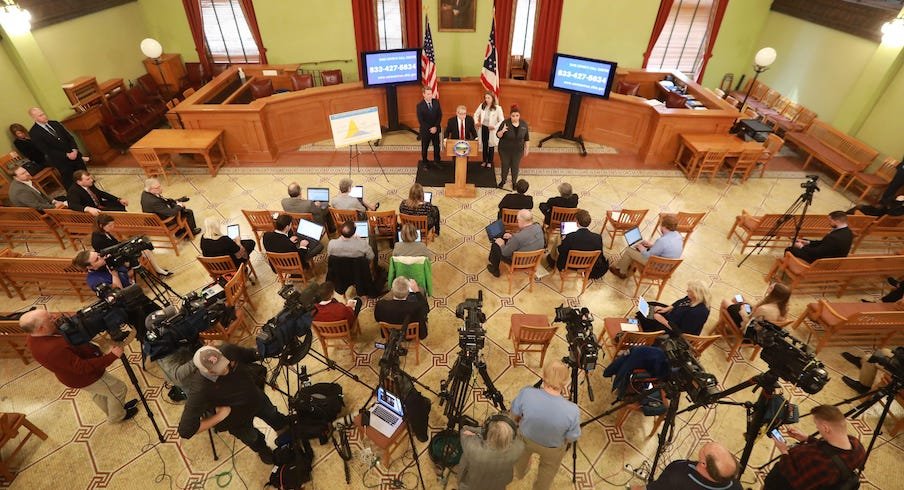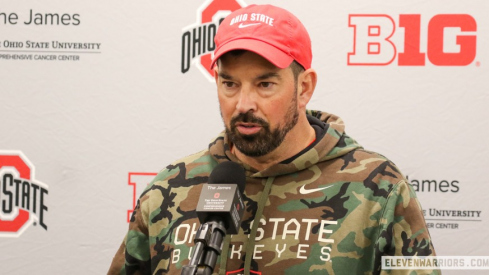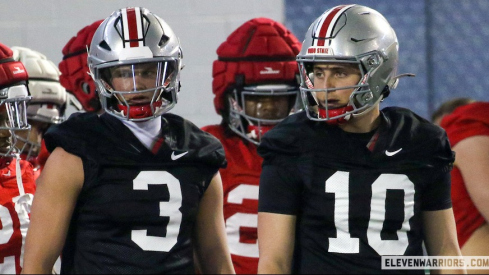What began as Senate Bill 187 has now become part of House Bill 29.
The Ohio House of Representatives voted, 57-36, on Thursday to pass an amended Senate bill regarding college athletes' ability to make money off of their name, image and likeness that had previously gotten through the Senate with unanimous support. Because of the amendment – which was approved in a 54-40 vote and requires youth athletes to compete in sports based on their sex assigned at birth – the NIL portion of the Senate bill has now been included in the House bill, along with legalized sports betting.
House Bill 29 passed the Senate, 31-0, on Thursday evening. It now goes to the House of Representatives for a concurrence vote. The House will reconvene on Friday. This latest bill does not have an emergency clause, meaning 90 days would have to pass after governor Mike DeWine signs it before it goes into effect.
Representative Jena Powell introduced the amendment to the Senate bill, which suddenly made it no longer solely about name, image and likeness. It would bar transgender girls from participating on female teams in sports, instead having them play on male or co-ed teams. Additionally, the representatives voted to remove the emergency clause. Since the Senate bill passed the House of Representatives after being amended, it was sent back to the Senate.
Ohio State released a statement on Thursday night in response to the amended Senate bill passing.
"Ohio State supports a clean name, image and likeness bill, like the bill passed by the Ohio Senate, which will support all student-athletes across Ohio," school spokesman Ben Johnson said.
In response, the NIL portion of the Senate bill – along with sports betting – was added to House Bill 29, which was introduced to allow somebody "who was discharged from the United States Public Health Service or the National Oceanic and Atmospheric Administration to obtain an Ohio veterans identification card."
If a bill including the original NIL language eventually passes, all Ohio athletes would be allowed to profit from their name, image and likeness when it goes into effect. The bill, introduced at the Covelli Center on May 24 by state senator Niraj Antani, gives athletes the ability to have agents or representatives, does not allow schools to dictate deals that fall within the rules, bans earning compensation for marijuana, alcohol and tobacco or casinos and has a mandatory 15-day waiting period between when athletes have to inform a university of their intention to sign a contract and when the contract can be entered into.
Ohio, if the bill is ultimately signed, would join Alabama, Florida, Georgia, Mississippi, New Mexico and Texas to become the seventh state to pass name, image and likeness legislation set to begin on July 1. Day and Smith twice showed up at the Ohio Statehouse to advocate for the passage of the bill. Day highlighted his belief that Ohio schools would be at a "competitive disadvantage" if it isn't implemented by the first day of next month. However, unless the emergency clause is put back into the bill or the NCAA makes a rule change, it's unlikely that this bill would be effective on July 1.
The states that don't pass name, image and likeness legislation by July 1 might not be left out, though. NCAA president Mark Emmert, per The Athletic's Nicole Auerbach, sent a memo to administrators at schools in all three divisions to say the organization "would develop interim solutions so that student-athletes, no matter which state they're enrolled in would be able to take advantage of NIL opportunities."
Editor's note: This story was updated at 10:20 p.m. on Thursday to include the news of name, image and likeness being attached to House Bill 29.


